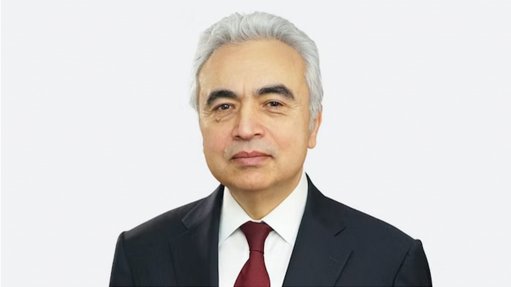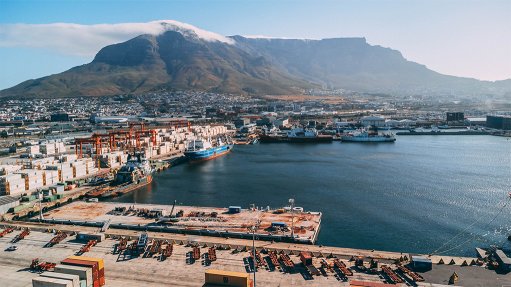Russia has nuclear training programmes for foreign partners
Russia is willing and able to help train South Africans in the skills required to operate the country’s planned new fleet of nuclear power plants (NPPs). Russian State-owned nuclear company Rosatom already has in place training programmes for foreign personnel, points out Rosatom Central Institute for Continuing Education and Training (CICE&T) vice-rector and Department of International Cooperation director Professor Vladimir Artisyuk. Options “For foreign countries, Russia offers several different options,” he explains. “These options depend on the educational and experience levels of the trainees – for example, whether or not they hold university degrees or whether or not they already have some experience in industry and whether or not that includes some experience in the nuclear sector.
“Rosatom possesses considerable experience in designing specialised training programmes and implementing them in multicultural environments. “They have done training with Iranians, Indians and Chinese,” he reports. “They were selected in their home countries and brought to Russia for training as NPP operators. Based upon this experience, the consortium of Rosatom training institutions offers e three-year training trajectory for NPP control room operators.” The first year is spent on theory, the second on training on simulators and the third year involves practical training at Russian NPPs. Up to 300 students can be accommodated at the same time. “We can provide interpreters, if necessary, but our institute has young staff who speak good English.”
At the other extreme, the Rosatom-CICE&T – which is based in Obninsk, in the Kaluga region, some 100 km from Moscow – can provide short courses as well. These usually involve three to five groups of people with about ten people in each group and can be as short as two weeks. These are aimed at people who are already highly qualified but who need instruction in specialised areas.
This training of people from emerging nuclear countries is also being conducted in cooperation with the International Atomic Energy Agency (IAEA). Under an agreement signed between the Rosatom-CICE&T and the IAEA, the latter helps fund emerging-country trainees attending courses at the institute. Part of this cooperation covers the training of emerging-country decision-makers for nuclear programmes. “We cover very diverse fields, including financing, radiological issues, NPP operation – many, many subjects,” he elucidates. “Since we belong to industry – Rosatom – it is easy for us to access experts, to assist in the training.” Since 2014, the Rosatom-CICE&T, in cooperation with the IAEA, has been implementing training courses for Nigeria and Ghana.
The provision of training is also an expression of the Russian philosophy of developing long-term relationships in the nuclear sector. “When Russia started developing [civil] nuclear power, it was not done just as a business,” he notes. Safety “From the very beginning, Russia made a choice for safety. “There was also a focus on [nuclear] education.
“I hope to see, in my institute, people from South Africa, to get a taste of Russian culture and training and to discover Russia’s readiness for long-term relationships,” he affirms. “We’re not focused on business only; we’re focused on establishing long-term reliable relationships. “It is with this philosophy that, for example, Russia offers the option of providing a secure long-term fuel supply and of taking back spent fuel.”
In Russia, education and training are clearly distinguished. Education takes place in unversities, training occurs within industry. Russia requires all its NPP operators to have university degrees. (A number of other countries have the same requirement.) It is not that there is an NPP operator degree, rather it “is a basic education trajectory”, explains Artisyuk. “It means that the students, from the first year of study, are orientated towards NPP operation. “Their first-year courses – general physics, chemistry, mathematics and engineering –have some orientation to nuclear energy in each case.” It usually takes five years to get a degree in Russia. “Russia believes that NPP operators should have a university degree so as to have a deep understanding of the physical processes taking place inside the reactors they are controlling.”
Once graduated, the prospective NPP control room operator joins a power plant in a junior position. At least one year is spent as a junior worker or field operator, despite his or her university degree. Then they work their way up the grades until, after three to five years, they can sit for the NPP operator’s licence exam (set by Russia’s independent nuclear regulatory authority, Rostechnadzor). Once one has qualified as an NPP operator, it takes at least another five years to be able to become an NPP operator shift supervisor. “It is in[this] way that the modern Russian nuclear power industry achieves its high safety level,” he concludes.
Comments
Announcements
What's On
Subscribe to improve your user experience...
Option 1 (equivalent of R125 a month):
Receive a weekly copy of Creamer Media's Engineering News & Mining Weekly magazine
(print copy for those in South Africa and e-magazine for those outside of South Africa)
Receive daily email newsletters
Access to full search results
Access archive of magazine back copies
Access to Projects in Progress
Access to ONE Research Report of your choice in PDF format
Option 2 (equivalent of R375 a month):
All benefits from Option 1
PLUS
Access to Creamer Media's Research Channel Africa for ALL Research Reports, in PDF format, on various industrial and mining sectors
including Electricity; Water; Energy Transition; Hydrogen; Roads, Rail and Ports; Coal; Gold; Platinum; Battery Metals; etc.
Already a subscriber?
Forgotten your password?
Receive weekly copy of Creamer Media's Engineering News & Mining Weekly magazine (print copy for those in South Africa and e-magazine for those outside of South Africa)
➕
Recieve daily email newsletters
➕
Access to full search results
➕
Access archive of magazine back copies
➕
Access to Projects in Progress
➕
Access to ONE Research Report of your choice in PDF format
RESEARCH CHANNEL AFRICA
R4500 (equivalent of R375 a month)
SUBSCRIBEAll benefits from Option 1
➕
Access to Creamer Media's Research Channel Africa for ALL Research Reports on various industrial and mining sectors, in PDF format, including on:
Electricity
➕
Water
➕
Energy Transition
➕
Hydrogen
➕
Roads, Rail and Ports
➕
Coal
➕
Gold
➕
Platinum
➕
Battery Metals
➕
etc.
Receive all benefits from Option 1 or Option 2 delivered to numerous people at your company
➕
Multiple User names and Passwords for simultaneous log-ins
➕
Intranet integration access to all in your organisation


















